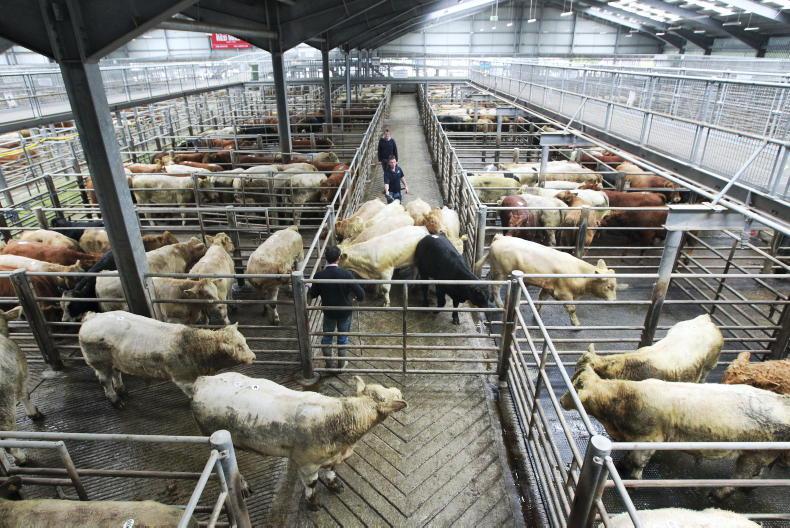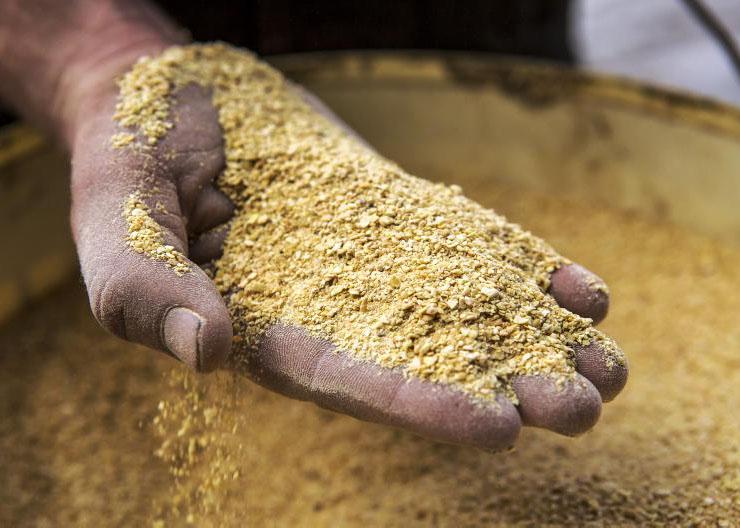As the UK Prime Minister and cabinet members continue the charge towards departure from the EU on 31 October, it is clear the reality of what this means has hit farmers.
Welsh sheep farmers conveyed their concern to the Prime Minister on his visit to Wales and the following day when he was in Northern Ireland, many expected that he would drop in on the Clogher Valley Show. He didn’t, but the farming unions across the UK regions have been making it clear that a no-deal Brexit is unacceptable to farmers.
People’s Vote latest to comment
Then this week, the People's Vote campaign published an impact paper on the implications of a no-deal Brexit on agriculture, produced by former NFU chief economist Dr Sean Rickard.
The soundbite that can be taken from it is that a no-deal Brexit could put up to half of UK farms out of business and wipe out the UK’s sheep meat industry, which is currently the third biggest exporter in the world but primarily to the rest of the EU.
This report was accompanied by a civilised herding of a few sheep through Whitehall, a much more civilised affair than a farmers' protest in France or indeed Ireland.
The message from this latest report is similar to reports produced by Andersons Consulting for the UK levy boards and by former IFA chief economist Con Lucy – all of which concluded that a no-deal Brexit would devastate UK agriculture.

The UK Parliament may yet prevent a no-deal Breixt but it is by no means certain that it can.
Beef will also suffer
The declaration by the government that it would create a 230,000t beef quota with zero tariff alarmed the Irish industry when it was announced back in March. Of course the impact would be felt equally by UK beef producers because whatever premium they secure in the marketplace is on top of what the lowest-value high-volume imported supply and this is currently Irish.
Our base price may be shockingly poor at €3.45/kg for steers but it is still a long way ahead of Brazil and Argentina at around the equivalent of €2.25/kg, and the UK would attract huge volumes of beef from these countries very quickly.
USA angle
Also this week we had conflicting messages from the US. John Bolton, President Trump's national security adviser, has said that a trade deal could be done between the US and UK on a sector-by-sector basis but the following day the president of the Farm Bureau Zippy Duvall rejected this in an interview with the Today programme on BBC radio.
He said that “to have a trade treaty and not discuss agriculture would be turning your back on rural America,” and he rejected the notion that hormone-treated beef or chlorine-washed chicken would be excluded.
This is consistent with their policy on the TTIP negotiations with the EU and it was one of the reasons why the negotiations had ground to a halt before President Trump pulled the pin on them when he came into office.
Support payments
Add to all this the uncertainty over future farm support payments when the UK leaves the EU – the payment that will be received this autumn is the last CAP payment. The UK government has committed to maintaining payments for the duration of this parliament which is supposed to be 2022 but an election before that is more likely than not and it could be in 2019.
The PM has committed more farm payment money to Scotland but there is no indication where it is coming from. This leads to suspicion among farmers that it could be a reallocation of payments between the UK member countries.
From all of this it is clear that a no-deal Brexit is as big a threat to British farming as it is to Irish farming. It may be that Parliament will stop a cliff-edge Brexit or an extension will somehow happen again.
However, as the PM prepares to visit France and Germany ahead of the G7 summit next weekend, farmers across Ireland and Britain are right to be worried.
As the UK Prime Minister and cabinet members continue the charge towards departure from the EU on 31 October, it is clear the reality of what this means has hit farmers.
Welsh sheep farmers conveyed their concern to the Prime Minister on his visit to Wales and the following day when he was in Northern Ireland, many expected that he would drop in on the Clogher Valley Show. He didn’t, but the farming unions across the UK regions have been making it clear that a no-deal Brexit is unacceptable to farmers.
People’s Vote latest to comment
Then this week, the People's Vote campaign published an impact paper on the implications of a no-deal Brexit on agriculture, produced by former NFU chief economist Dr Sean Rickard.
The soundbite that can be taken from it is that a no-deal Brexit could put up to half of UK farms out of business and wipe out the UK’s sheep meat industry, which is currently the third biggest exporter in the world but primarily to the rest of the EU.
This report was accompanied by a civilised herding of a few sheep through Whitehall, a much more civilised affair than a farmers' protest in France or indeed Ireland.
The message from this latest report is similar to reports produced by Andersons Consulting for the UK levy boards and by former IFA chief economist Con Lucy – all of which concluded that a no-deal Brexit would devastate UK agriculture.

The UK Parliament may yet prevent a no-deal Breixt but it is by no means certain that it can.
Beef will also suffer
The declaration by the government that it would create a 230,000t beef quota with zero tariff alarmed the Irish industry when it was announced back in March. Of course the impact would be felt equally by UK beef producers because whatever premium they secure in the marketplace is on top of what the lowest-value high-volume imported supply and this is currently Irish.
Our base price may be shockingly poor at €3.45/kg for steers but it is still a long way ahead of Brazil and Argentina at around the equivalent of €2.25/kg, and the UK would attract huge volumes of beef from these countries very quickly.
USA angle
Also this week we had conflicting messages from the US. John Bolton, President Trump's national security adviser, has said that a trade deal could be done between the US and UK on a sector-by-sector basis but the following day the president of the Farm Bureau Zippy Duvall rejected this in an interview with the Today programme on BBC radio.
He said that “to have a trade treaty and not discuss agriculture would be turning your back on rural America,” and he rejected the notion that hormone-treated beef or chlorine-washed chicken would be excluded.
This is consistent with their policy on the TTIP negotiations with the EU and it was one of the reasons why the negotiations had ground to a halt before President Trump pulled the pin on them when he came into office.
Support payments
Add to all this the uncertainty over future farm support payments when the UK leaves the EU – the payment that will be received this autumn is the last CAP payment. The UK government has committed to maintaining payments for the duration of this parliament which is supposed to be 2022 but an election before that is more likely than not and it could be in 2019.
The PM has committed more farm payment money to Scotland but there is no indication where it is coming from. This leads to suspicion among farmers that it could be a reallocation of payments between the UK member countries.
From all of this it is clear that a no-deal Brexit is as big a threat to British farming as it is to Irish farming. It may be that Parliament will stop a cliff-edge Brexit or an extension will somehow happen again.
However, as the PM prepares to visit France and Germany ahead of the G7 summit next weekend, farmers across Ireland and Britain are right to be worried.










SHARING OPTIONS